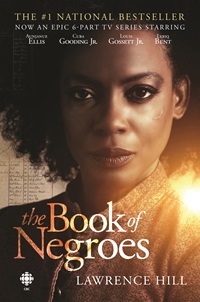 There are so many ways to celebrate books and encourage communities to read together. From local book clubs to Canada Reads, the CBC’s annual battle of the books, these events transform the private act of reading into a communal practice. The goal is to start a collective conversation about books that can change perspectives, break barriers and illuminate issues.
There are so many ways to celebrate books and encourage communities to read together. From local book clubs to Canada Reads, the CBC’s annual battle of the books, these events transform the private act of reading into a communal practice. The goal is to start a collective conversation about books that can change perspectives, break barriers and illuminate issues.
In the winter of 2015, Sheridan College where I teach launched its own extended community reading event: Sheridan Reads. The multi-faceted initiative is designed to bring together students, staff and faculty with community groups, public libraries and service organizations in the area to discuss and celebrate the work of a chosen writer. We kicked off Sheridan Reads with Lawrence Hill’s historical novel, The Book of Negroes. Hill came to Sheridan to deliver the inaugural lecture on “Mining Creativity: Perspectives from a Novelist and Screenwriter.”
The audience attending the event experienced a frisson of excitement when the celebrated author made his appearance on the Trafalgar Road campus in Oakville. Hill was remarkably gracious, chatting with attendees, expressing interest in our lives, sharing information about his forthcoming novel. In his lecture, the same sense of candor prevailed. Hill told us that he learned the power of writing at a young age when he asked his father for a kitten. His father required him to write a letter stating why he should be allowed to have a kitten. “He gave me the kitten,” Hill said, “which was the most foolish thing he ever did because from that point on I kept writing letters whenever I wanted something significant.”
As expected, Hill conducted extensive research while writing The Book of Negroes. Although the protagonist in the novel, Aminata Diallo, is a fictional character, her story is based on historical fact. In his lecture, Hill noted that some of his most stirring findings were accidental. In one archival search, he happened to come across an historical painting from the 18th century showing the cruel march of African men, women and children to the slave ships. This visualization of the forced walk stimulated his imagination and became a powerful scene in both the book and the CBC television adaptation of the novel, which Hill co-wrote. Be opened to the accidents of research, he advised the audience.
The take-away from Hill’s lecture at Sheridan —and his books generally — is the basic truth that stories matter. “Some of us turn to stories in the way that others turn to religion,” he noted, suggesting that we seek comfort in narrative during time of crisis and stress. By telling stories, particularly our own stories, Hill believes we discover who we are, where we come from, where we’re going, what lessons we can draw from the past and how we want to live.
The need to tell our own stories may well explain Hill’s desire to write The Book of Negroes. The son of a black father and white mother who were human rights activists in the United States and Canada, Hill has written extensively on being black and black history, both in his fiction and non-fiction. In an interview prior to his lecture at Sheridan, Hill reflected on the transatlantic migration of the Black Loyalists who are portrayed in The Book of Negroes. “Imagine that — being stolen from Africa as a child, becoming enslaved …but getting back to the mother continent in the same lifetime.” He itched to dramatize one of the most astounding transatlantic migrations in history. And why not? As a black Canadian writer, Hill can embrace The Book of Negroes as his story, too.